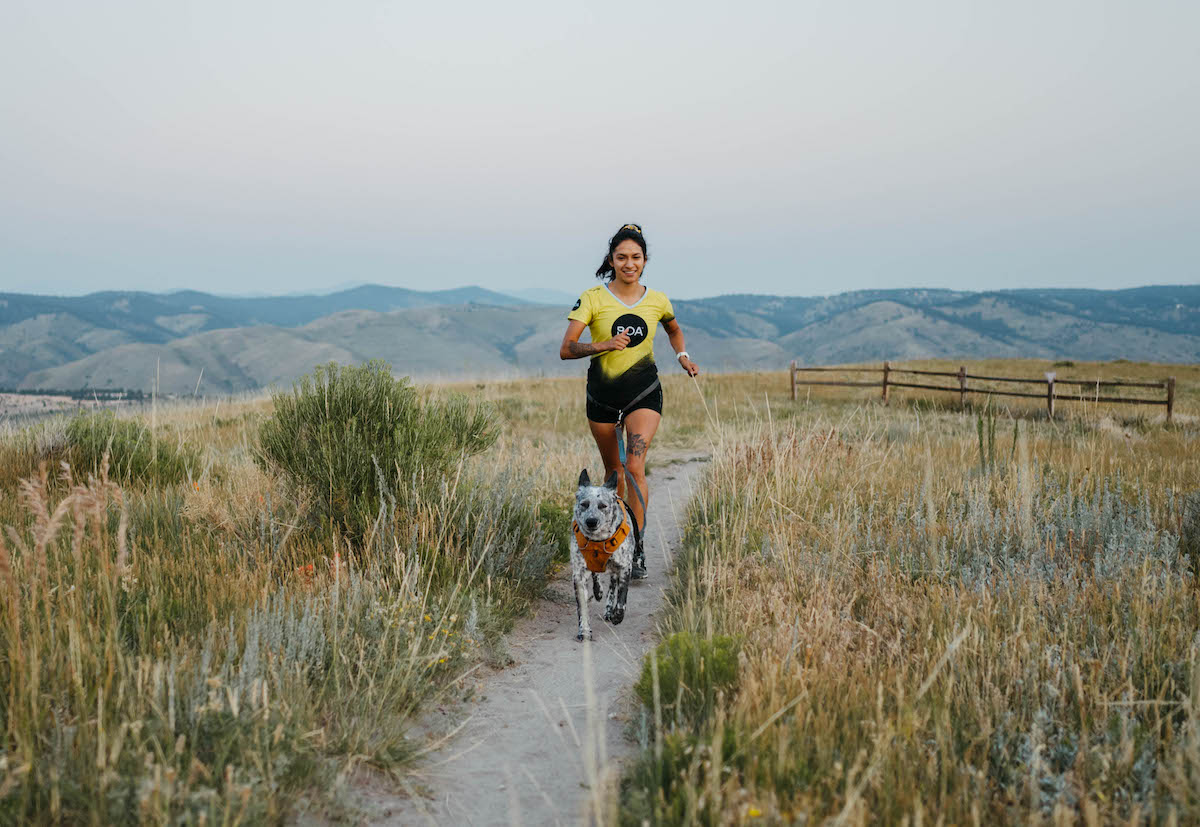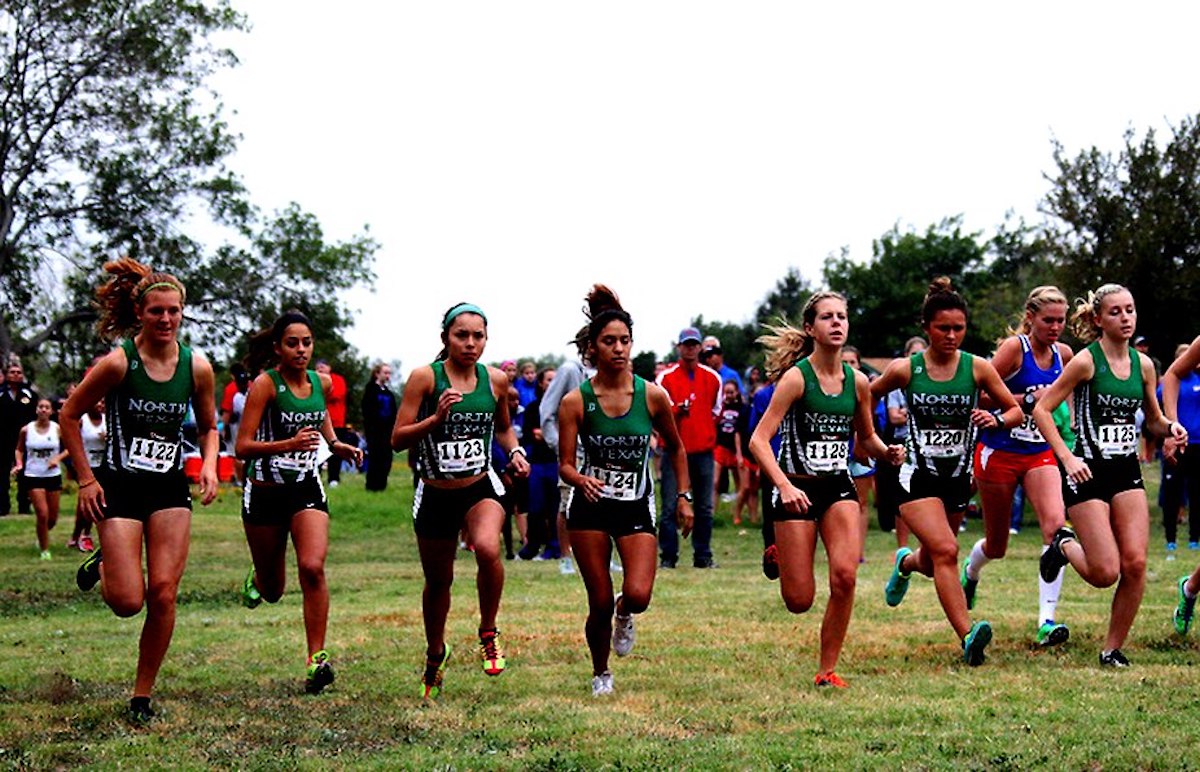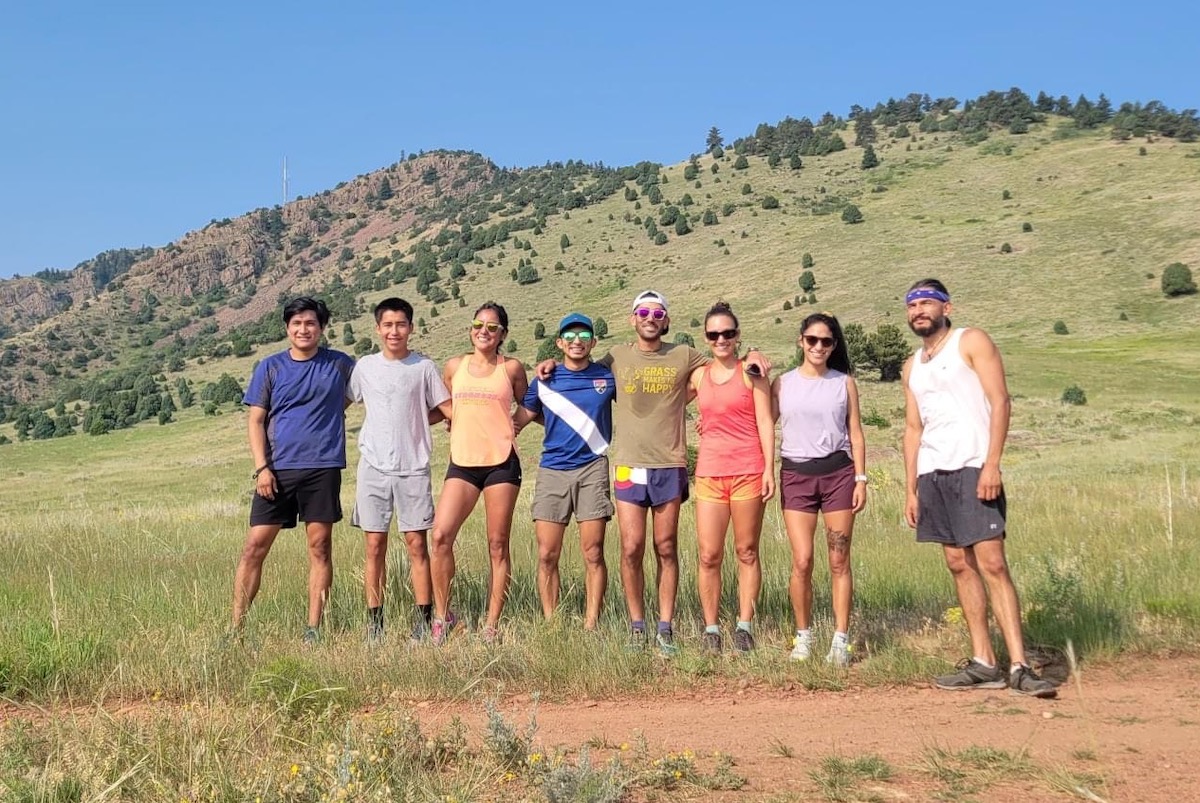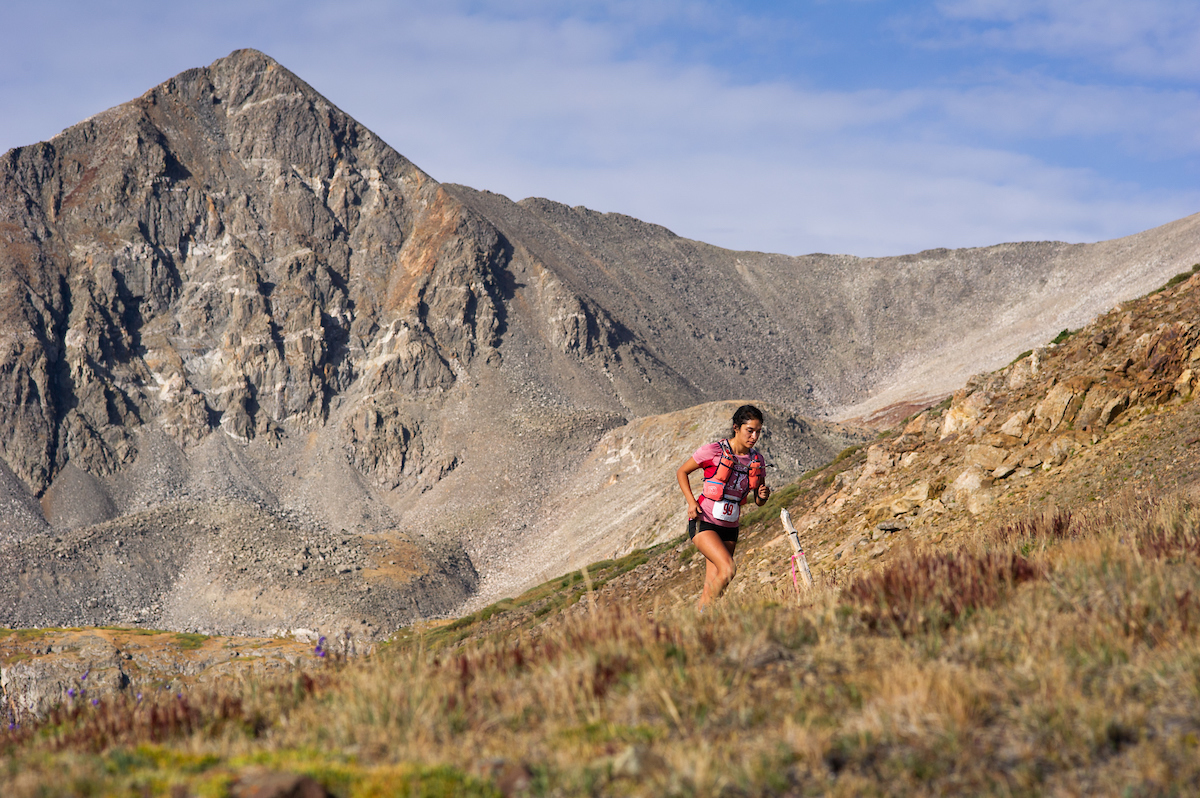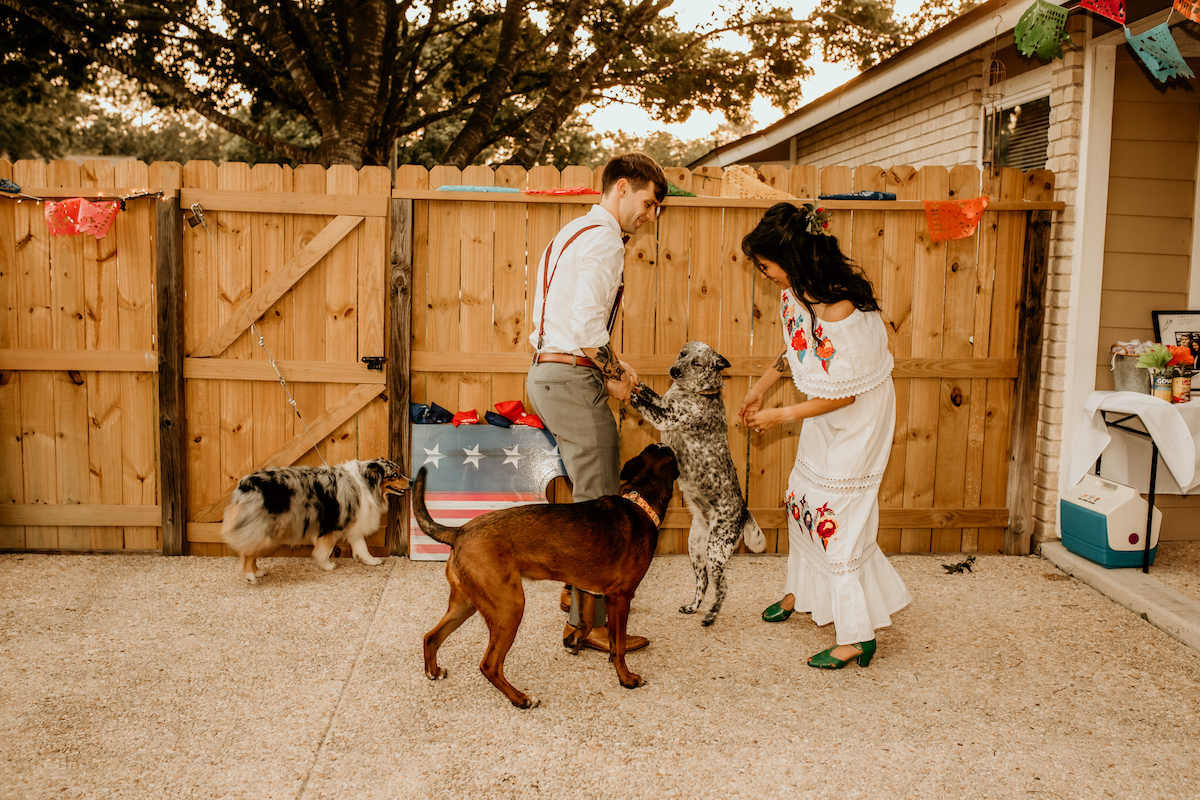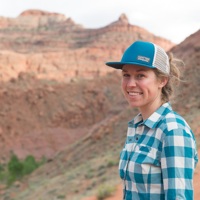Laura Cortez is a Hispanic LatinX trail runner and the co-founder of Trailtinos, a trail running group that supports “LatinX, Hispanic, Afro, and Indigenous peoples” with a mission to promote community and diversity in the outdoors. She’s also the co-founder of the Run Wild Trail Camp for youth that are historically excluded or underserved. Recently, her community engagement earned a U.S. national spotlight on the cover of Trail Runner Magazine. A longtime runner, Laura recently won the 2021 Brazos Bend 50 Mile in Needville, Texas. But speed isn’t her primary focus. “Laura is always very encouraging and inclusive of others, even if they’re slower runners,” says her friend Candace Gonzo.
The 27-year-old trail running community leader grew up in San Antonio, Texas, where her family still lives. As a kid, Cortez shadowed her older brother’s interests, bringing her to soccer. She played from ages five to 18 on neighborhood, club, and varsity teams. To stay in shape for sprinting along the field, she joined cross country and track in middle school, running the 100- and 200-meter distances.
“I distinctly recall hating the gun sound at the starting line of track meets. In high school, my primary focus was always soccer. My first cross-country practice was a three-mile loop, and my friend Julia and I got in trouble for walking most of it. The first cross-country race was a two-mile course where I went out super hard, fell in the first 800 meters, and hurt my knee. It was pretty embarrassing. But I grew from that experience and ended up being on varsity the next three years. During that time, we won state each year,” shares Cortez, whose dream was to play collegiate soccer. At a tournament her junior year, she was side-tackled, leading to a complete anterior cruciate ligament reconstruction surgery. Her knee didn’t fully bounce back her closing year in high school.
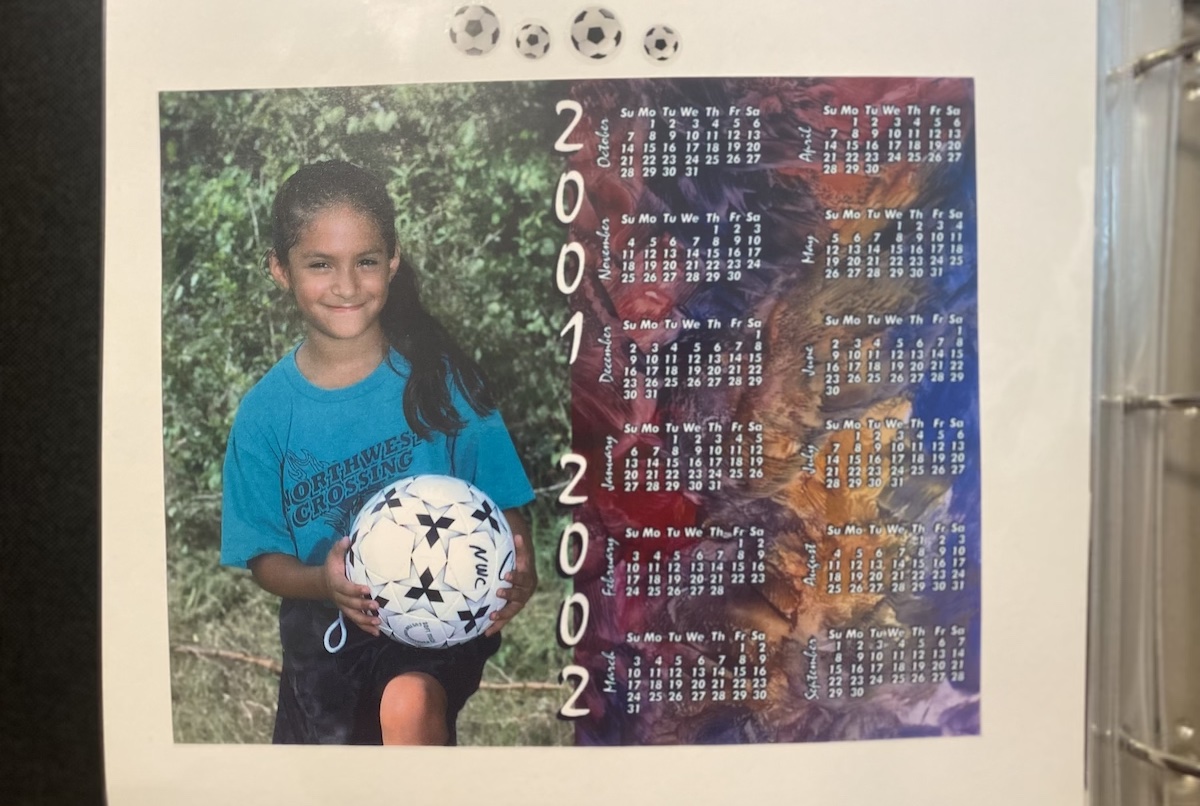
Laura played soccer as a child, following in her brother’s footsteps. All photos courtesy of Laura Cortez unless otherwise noted.
“A lot of my friends were signing contracts to run at various universities our senior year, and I ended up walking on at the University of North Texas where I ran all four years. I loved cross country, hated track, and really enjoyed the long runs and tough workouts,” she says. Cortez studied journalism, graduated in 2016, and moved to Portland, Oregon, for a year before jumping back to San Antonio. She applied for marketing jobs but received no traction, until she looked in Denver, Colorado. “There were more job opportunities, and the concept of working in the growing outdoor industry was intriguing, though I had no real experience or know-how with that. As soon as I started applying to jobs in the Denver area, I got calls back, which was a motivating factor to move here. I looked on Craigslist for an apartment and stumbled on someone else from San Antonio moving to Denver. We became best friends and roommates,” says Cortez, who took a role at a digital marketing agency for dentists in January 2018. Eventually, she joined Boulder Running Company, a Boulder-based run store, but recently left to launch her own business as a full-time digital and email marketer, and copywriter.
Cortez first dabbled in trail running during her stint in Portland, a suggestion of her then-coach David Roche. “I thought it was super fun and ran a bunch of trails in Portland. When I moved back to Texas, I started trail racing. And in Colorado, trail running is everywhere,” says Cortez, who ran her third-ever trail race in Colorado Springs soon after she moved to the Centennial State, the Rattler 25k, where she made the podium. At another trail race, she became friends with a runner wearing a Berkeley Park Running Company shirt. The Denver area shop specializes in trail running gear, organizes weekly meet-ups, and offers a run club, which Cortez joined. Through Berkeley, she got plugged her into a welcoming trail community, a space that she had trouble finding during her time in Oregon.
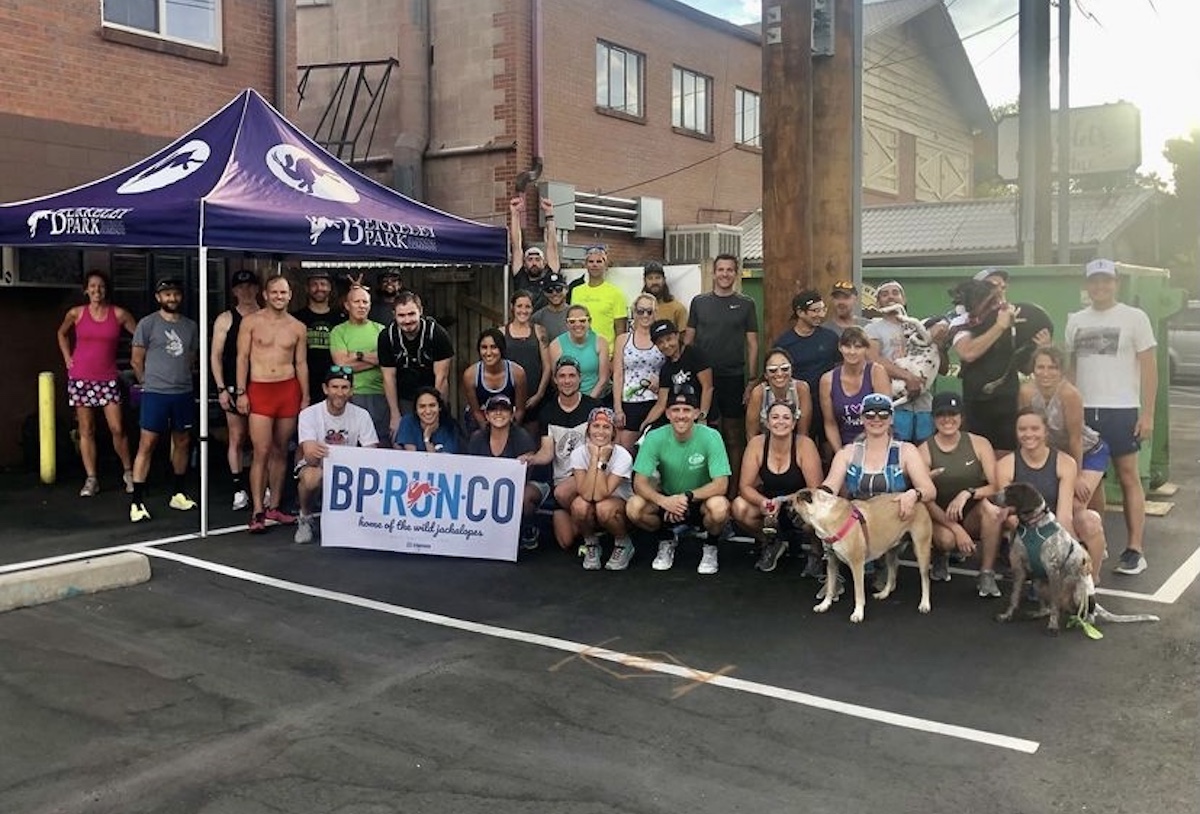
Laura (second from left, bottom row) with the Berkeley Park Running Company, the club team she joined.
After relocating to Denver, Cortez also met Meredith Merkley, a general pediatrician who has worked with youth organizations for more than 15 years. Merkley envisioned a trail running camp that would help lower barriers for historically excluded or underserved youth. Cortez was elated to work toward that mission, and the duo launched Run Wild Trail Camp. “One of my passions is reducing the racial equity gap in the outdoors, and giving kids more knowledge to participate outdoors that doesn’t perpetuate the capitalist ideas of what you have to be and look like to be there,” says Cortez.
The COVID-19-pandemic-induced pause of 2020 allowed them to slow down and develop a plan for the organization. In summer 2021, they partnered with local YMCA summer youth camps and offered weekly programs at two elementary schools. The curriculum covers lessons like how to stay safe and how to identify plants. The kids write and draw in field notebooks to express themselves creatively outdoors, play games that teach about wildlife, and guest speakers offer their time.
“Our guest speakers have included Indigenous representatives and athletes from the Olympic Marathon Trials. We try to be aware of who we bring in so that these kids can see themselves in that person. Having that representation aspect for Black and brown kids is important because they don’t easily get that image,” says Cortez. Now, Cortez and Merkley are working to develop a year-round curriculum for elementary schools. Their organization is supported through sponsorships including support from Boa Technology, which debuted a 2021 international trail running team that Cortez is on. Merkley and Cortez will apply for grants this year, too.
Cortez’s inclusivity work doesn’t stop with kiddos. When Cortez met her friend Victor Fallon through the Berkeley Park Running Company run club, he asked, “When you go to a race for the first time or you go back to that event the following year, do those people recognize you? Or do they confuse you for other brown people?” Cortez likewise experiences this community misplacement of her identity in a sea of traditionally white runners. “People confuse me and Rosa Amaya, a friend of mine, because we’re both non-white: She’s five foot, six inches tall and I’m five foot, three inches,” says Cortez. The two friends realized they could help serve the community by launching a run group for athletes who are LatinX and Hispanic: Trailtinos. “At the end of the day, trail running is elitist and intimidating. We want to create a space where thoughts and ideas are welcome,” she says. Now, they’ve expanded the group to be even more broadly inclusive to those who don’t identify as white. For instance, an Asian Pacific Islander runner recently joined.
“We want to have more inclusive language and understanding. Being LatinX and Hispanic isn’t just being brown. There are people who are Black who can be closer to the culture than Victor or I are. We want people who are Black to know they are welcome,” she says. Trailtinos is free to join and meets once every other week for a trail run in the mountains or in Denver neighborhoods. “Everyone is spread out, we want to reach people where they are, and we want to deconstruct what the trail is. You might think it’s a dirt trail that goes up really high, but we can have city trail runs on the High Line Canal Trail or Platte River Trail, so that people who don’t live near a mountain trail can still internalize that they’re a trail runner even though they’re in an urban setting. One doesn’t make you more of a trail runner than the other,” says Cortez. Looking ahead, it would be great to have brand support for product demos, discounts, or donations to the group to help lower barriers of access and promote diversity in the sport, she adds — but more needs to be done.
Cortez explains, “When brands support diversity in sport, their first thought is often shoes. Yes, that’s awesome, and they’re expensive. But the longevity of the sport is another thing. It’s one thing where they say, ‘We want to see more diversity on start lines.’ But to take it a step further: How do we get the next generation into the sport? I’m thinking about our kids in the Run Wild Trail Camp. In contrast to road runs, a half-marathon trail race requires a full day compared to 30 minutes. Time to commit to the sport is such a privilege, having your family’s time supporting you is a privilege, and having paid time off is a privilege. Brands that are traditionally white-identifying continually support the people who are already at the top, but they miss the mark of investing in [minority] runners who have potential: people who might not be in a top place at UTMB, and it’s an unconscious bias — even if those [minority] runners are kept at ambassador level. When brands talk about diversifying the sport, I’d like for them to define what that is. Do you mean at a local 5k or at the top of the sport, so that representation can trickle down and be the image that kids need?”
Next up, Cortez aims to qualify for Team USA to compete at the World Mountain and Trail Running Championships. Recently launched, the biennial event is coordinated by the World Mountain Running Association (WMRA), International Association of Ultrarunners (IAU), and International Trail Running Association (ITRA). “I really want to make Team USA…. My coach Sarah Pizzo is super excited about that goal, and she still wants me to keep having fun. She pushes me to get out of my comfort zone, like signing up for the Cirque Series. Even if you have a bad race, you can always learn something,” says Cortez. Ahead, she plans to race the Moab Trail Marathon in November, the 2021 USATF Trail Marathon National Championships. Cortez’s husband, Sage Thornbrugh, will also race in Moab this November. He plans to sign up for the Dead Horse Ultra 30k, for fun. “Sage is one of those people who is really good at everything he does and picks up things very quickly. His first trail race was a 25k, and he loved it. He primarily rock climbs and plays soccer on the weekends, and he’s met all my run-club friends,” says Cortez.
She also aims to get more involved with supporting the Indigenous community: “It is so important to follow the Indigenous community, give land acknowledgement, and learn from them how to be a good steward of the land, how to hold a sacred space, and how to address wildfires. Colorado’s air quality has been so horrible, and there are so many asks from the Indigenous community for bills to be passed for air quality. It’s important to do the extra research for Indigenous organizations, and not necessarily ask how you can support, but watch what they do and follow suit. It’s on us to piece it together and not put a burden on Indigenous leaders.”
